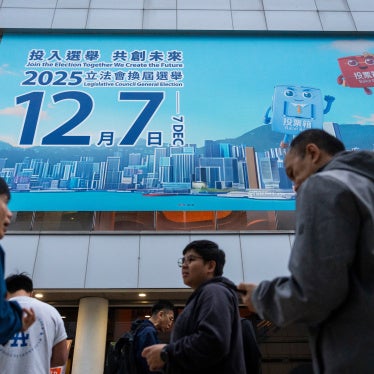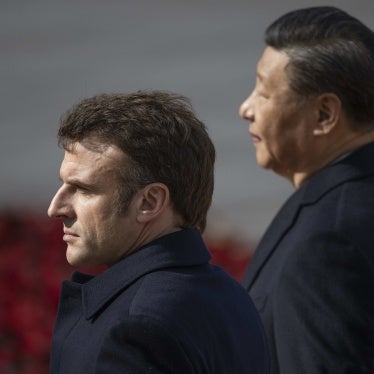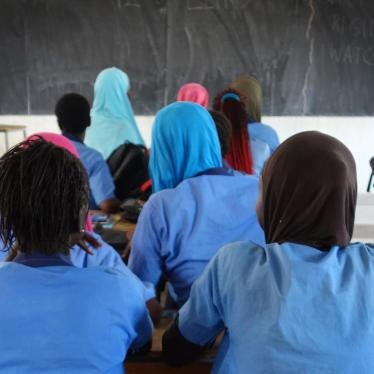Committee on Foreign Affairs
Subcommittee on Asia and the Pacific
Hearing of November 20, 2013
Bangladesh in Turmoil: A Nation on the Brink?
Testimony of John Sifton
Asia Advocacy Director
Human Rights Watch
Thank you for inviting me to testify today at this well-timed hearing. Human rights issues are a central topic of any proper discussion of Bangladesh’s current situation, and Human Rights Watch appreciates the opportunity to highlight key areas of concern.
Other witnesses have discussed Bangladesh’s dire political situation and the risks it presents. I would like to focus on the human rights implications of the current political impasse, and describe in more detail what human rights issues will be affected or impacted by events in the next few months. I will also discuss a few key human rights issues—not as high profile but still important—that are likely to be ignored or upstaged by political events in the near future.
Let me turn first to the political situation, and lay out what Human Rights Watch believes are the key human rights issues in play. The parameters of the standoff are well known: Bangladesh’s ruling party, the Awami League, has refused the opposition party BNP’s demands for a caretaker government to administer elections next year. As a result, there is a very real possibility that the BNP, and most of its political allies, will boycott the elections and thus the subsequent parliament and government those elections create.
With this instability will come political volatility. In boycotting before and after the elections, the BNP and its allies will presumably hold protests—hartals in the Bangladesh vernacular—shutting down transit and economic activity in key urban areas. In response, state security forces will use force of varying types, some of it responsive to events, some of its pro-active.
Perhaps none of this would be too worrisome in the abstract, were it not for the fact that hartals and security forces’ responses to them are in almost all cases accompanied by violence: mob attacks by political factions, and excessive use of force by state actors. Some of the worst violence so far this year occurred between gangs of rival party activists from the Awami League, BNP and Jamaat—none of whose leaders, it should be noted, have done much to restrain their supporters. Many people are likely to be injured in future political violence, and likely a large number of people will be killed. Many people will also be detained.
I want to emphasize that much of the potential violence I am discussing here would be violence in violation of law. Every government is entitled, even obligated, to exercise police powers to maintain order—even the use of force, so long as it is proportional and not excessive. The problem is that in Bangladesh, security forces don’t usually exercise force in a measured and proportional way. On the contrary, as Human Rights Watch has repeatedly documented, Bangladesh security forces have a long track record of using excessive force against protestors, even targeting them intentionally—as well as arresting and abusing detainees. To put in simple terms, they shoot people, sometimes intentionally, and often with extreme recklessness.
Human Rights Watch documented this year that Bangladeshi security forces frequently used excessive force in responding to street protests, including major violence between Islamist protestors and security forces in early May that killed approximately 50 people. By our estimates, security forces have killed almost 150 protesters and injured at least 2,000 since February 2013. And while large numbers of protesters have been arrested at various points this year, the Bangladeshi authorities have made no meaningful efforts to hold members of the government’s own security forces accountable for the frequent exercises of excessive force.
Current political instability will likely make matters worse. If the best predictor of future behavior is past behavior, Bangladeshi security forces’ record is serious cause for concern. The ruling Awami League knows the record itself quite well: when it was in opposition, their members suffered the same abuse, and Human Rights Watch was there to document it.
Violence is not the only concern. Heightened political volatility in coming weeks and months is also likely to lead to other kinds of abuses of civil and political rights. Not only are opposition political leaders likely to be detained and abused, there is also a high likelihood of crackdowns on freedom of speech—harassment of journalists’ activity and civil society groups in particular.
The committee is aware of course that officials from a key human rights group in Bangladesh, Odhikar, were jailed this year—one remains in custody. The government has used overbroad or vague laws, such as the Information Communication Technology Act, to target groups simply for acts of free speech. In the government’s view, it seems to be a crime to publicize facts or opinions that the government does not want to have publicized. The ICT Act, amended with new provisions in August of this year, now poses a serious threat to the exercise of the right to freedom of speech in Bangladesh. The law has been used to charge not only the two Odhikar officials, but also Mahmdur Rahman, editor of the Amar Desh newspaper, and four bloggers who have been accused on the vague charge of defaming Islam. The Bangladesh government also closed two television stations, Diganta TV, and Islamic TV, while they were broadcasting images of the police operations against Islamist protesters in central Dhaka in May 2013.
A breakdown in the political order of Bangladesh is also likely to have knock-off effects on other important human rights issues. There are many other human rights issues at stake in Bangladesh.
Women’s rights issues, for instance—the scourge of domestic violence and the need for important reforms to family law. Human Rights Watch recently documented, for instance, how lack of regulation and proper laws on marriages and divorces is a key contributor to violence against women, and called for key legal reforms.
Labor rights. Worker rights and worker safety have been in the spotlight in the aftermath of the Rana Plaza factory collapse and Tazreen factory fire, and small improvements have been observed in the ability of workers to organize. But key institutional changes still need to occur. The right to form unions, for instance, cannot be founded simply on new corporate sensitivities and the goodwill of factory owners and corporate buyers. The government must institutionalize labor protections, and guarantee effective enforcement of labor laws, which means recreating government institutions that oversee labor issues and making rights enforceable. Workers need to be able to call upon state institutions to protect their rights when those rights are being violated.
International justice. Human Rights Watch has supported and continues to support efforts to hold perpetrators responsible for the terrible crimes of the 1971 conflict that led to Bangladesh’s independence. The tribunal that has been created to hear those cases, however, has been marred by serious deficiencies which have undermined the integrity of its process and the soundness of the tribunal’s judgments—which have included, in eight cases, the death penalty. The tribunal’s judgments have profound impact on Bangladesh’s political scene, which is why observers have offered their constructive criticisms of the process—criticisms which have not been accepted.
All of these important human rights issues will be impacted by the possible breakdown in the political order in Bangladesh. Important legal reforms needed to safeguard women’s rights will be imperiled by entrenched political crisis. Labor rights concerns will suffer as continued protests further hurt production levels and lead to a contraction in labor needs, which in turn will weaken the capacity of workers’ rights groups. The tribunal too will suffer as its decisions are increasingly seen as politicized, and cynicism dulls good faith efforts to fix its deficiencies.
The consequences are clear. So what can be done to avert the worst outcomes?
The United States and other governments have stated their concerns. Secretary of State Kerry raised all of these issues in a letter to Sheikh Hasina and the leader of the opposition, Khaleda Zia, earlier this year. Ambassador Dan Mozena has been vocal—as have you, Mr. Chairman, in your recent visit. Assistant Secretary of State Nisha Bilwas reinforced the message during her visit this past weekend.
It will help, however, for Congress to further reinforce the message, and back up the concerns with warnings about the consequences for Bangladesh if its political crisis spins out of control.
Everything Bangladesh’s government wants and needs today—tariff reductions in the Generalized System of Preferences, good will in Europe to maintain low tariffs there, continued use of Bangladesh military forces for U.N. peacekeeping (a key source of revenue and national pride), involvement in regional security and strategic frameworks—all of this will be put at risk if Bangladesh suffers a political implosion. On some level, leaders in Bangladesh already know this—but it certainly helps to remind them.
Thank you allowing me to testify today.







